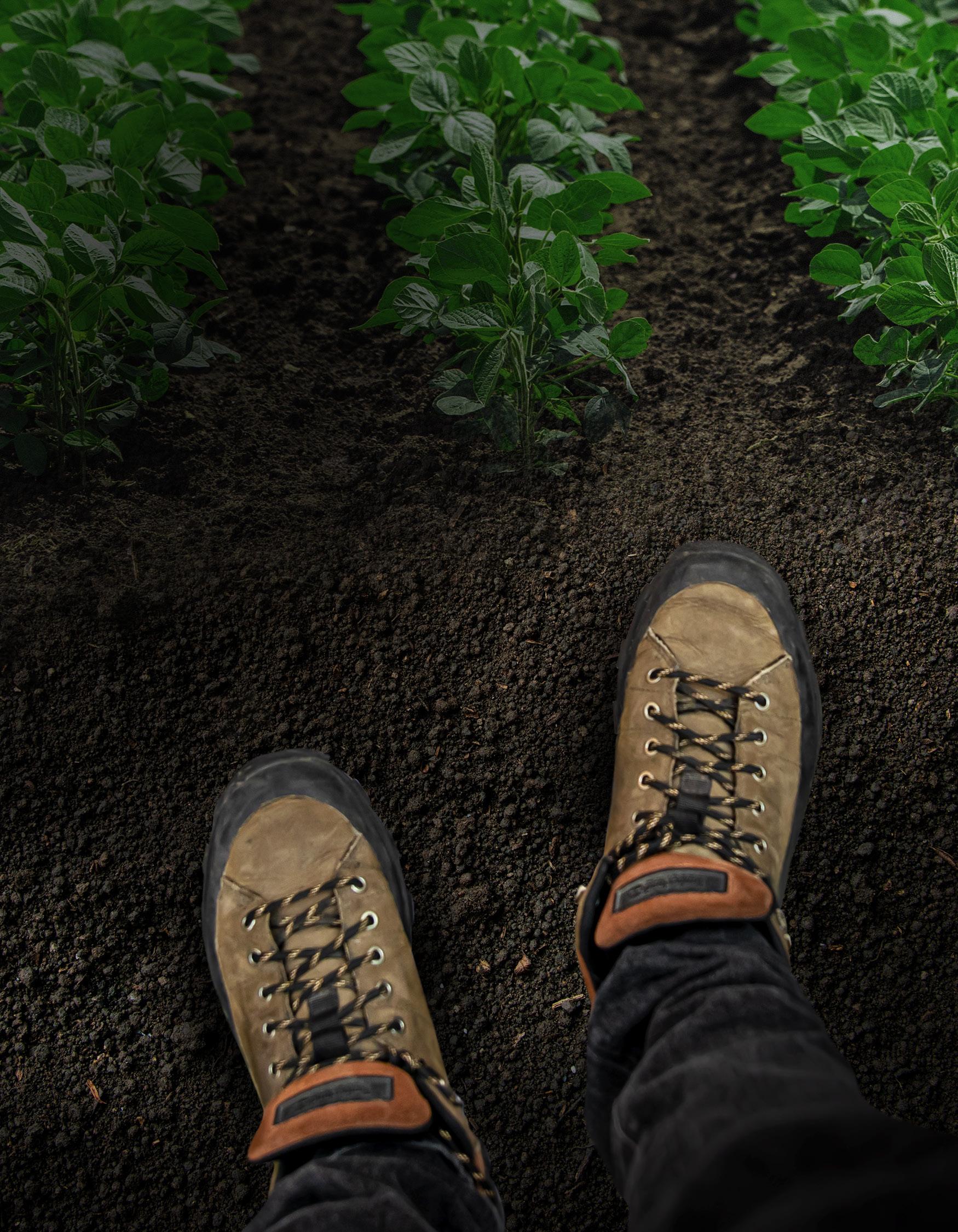
4 minute read
Q&A with the Soil and Water Outcomes Fund New Illinois-Based Agronomist

KEVIN SCHABACKER | AGRONOMIST | SOIL AND WATER OUTCOMES FUND
Advertisement
The folks at the Soil and Water Outcomes Fund (SWOF) have learned a thing or two about farming to maximize environmental outcomes and generate value. The organization’s new Illinois-based Agronomist, Kevin Schabacker, works with farmers and affiliate recruiters on enrollment and helping enrollees succeed throughout the season. Join along as we get to know a little more about Kevin!
Tell me about your background and education.
I grew up on a no-till grain farm in Ogle County, Illinois. I earned an associate’s degree from Kishwaukee Community College before going on to Southern Illinois University Carbondale where I earned a bachelor’s degree in Crop, Soil and Environmental Management. My previous work experience includes working with crop protection research trials, retail agronomy and most recently, working in plant breeding.
What is the Soil and Water Outcomes Fund?
The Soil and Water Outcomes Fund is a partnership of AgOutcomes and ReHarvest partners that provides financial incentives to farmers who are willing to adopt new conservation practices on their farm that yield positive environmental outcomes like carbon sequestration and water quality improvement.
What interested you about working in the carbon space?
I am very interested in sustainable agriculture and conservation, and I can say most of that interest was cultivated growing up on our no-till farm and seeing the benefits of these practices firsthand. Carbon has seemingly taken the front seat on driving new conservation practices that will help preserve and improve resiliency of farms for generations to come.
Why did you choose SWOF as the next step in your career?
I believe SWOF is truly unique in that we pair water quality improvements and carbon together. Conservation practices required for carbon markets are also improving water quality, and by quantifying these outcomes alongside carbon, we can maximize grower payments and continue to drive adoption of new conservation practices.
What has been the most surprising thing about your job so far?
I am very impressed with how SWOF has been able to scale. What started out as a pilot program in Iowa with about 9,500 acres, has now expanded to over 125,000 acres across five states in 2021. We are looking to enroll 50,000 acres in Illinois alone in 2022.
What is something you’ve learned that you didn’t know before joining the SWOF team?
Over 80% of greenhouse gas emissions from companies in the agriculture/food/beverage sector are tied to purchased goods and services, which includes goods and services purchased from farmers. These companies can reduce their emissions by working to reduce scope three insets, which are the carbon emissions from within their supply chain.
If you could sell the SWOF program to a grower in under one minute, what would you say?
If you are interested or even curious about adopting new conservation practices, talk with SWOF about how we can help!
When it comes to implementing conservation practices, what is the biggest concern you typically hear from growers and how do you address it?
Farming is a business that needs to be profitable in order to be sustainable. Many farmers understand that conservation practices such as a reduced tillage program or adding cover crops are beneficial overall for their farm long-term, but there are risks with trying something new on your farm especially when profit margins are tight. Generating environmental outcomes by participating in SWOF is a way to help balance that financial risk, whether it be trying a new practice on just a few acres or if you are ready to scale a new practice over your entire farm.
What’s your favorite crop?
This might be surprising, but peas.
What’s your favorite cover crop species?
A green one!
What’s your favorite agricultural season?
Harvest. I like to see the end result of the crop year and love fall weather.
What else would you like Illinois soybean farmers to know about you?
I was a 2013-2014 recipient of one of five scholarships that the Illinois Soybean Association awarded to SIUC Crop Science majors. I’m happy to bring what I learned back around to Illinois soybean growers.
TAKE THE FIRST STEP... I NEED FARM DATA. BUT WHERE DO I START?
START WITH FARMOBILE.
More growers are relying on data to document crops from field-to-bin and make more informed in-field decisions. But data is complex. It can seem overwhelming.
We get that. So, where do you start?
Farmobile is your first step to knowing field-level data – without putting boots on the ground. With Farmobile you automatically capture real-time, geospatial field + fleet data across mixed-model equipment – as you work. View data 24/7, share it with trusted advisors or export it into farm s ystems and software.


Step into data.
Book a FREE demo at aggrowth.com/knowyourdata and we’ll send a FREE hat!
aggrowth.com/knowyourdata
Illinois Soybean Association 1605 Commerce Pkwy Bloomington, IL 61704




WITH SOLUTIONS FOR ALL SYSTEMS AND SEASONS.
Navigate decisions big and small with guidance from soybean experts, industry news and insights, connections to other Illinois farmers, events, webinars and more. From the big picture to the root level, ILSoyAdvisor is here for you.
Find actionable info at ILSoyAdvisor.com
SCAN THE QR CODE AT LEFT TO LEARN MORE.



